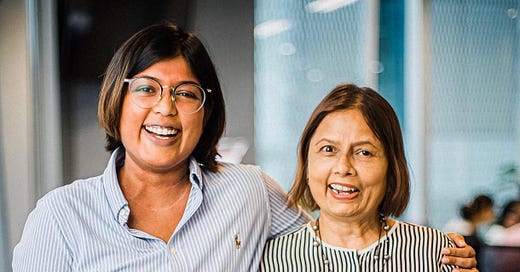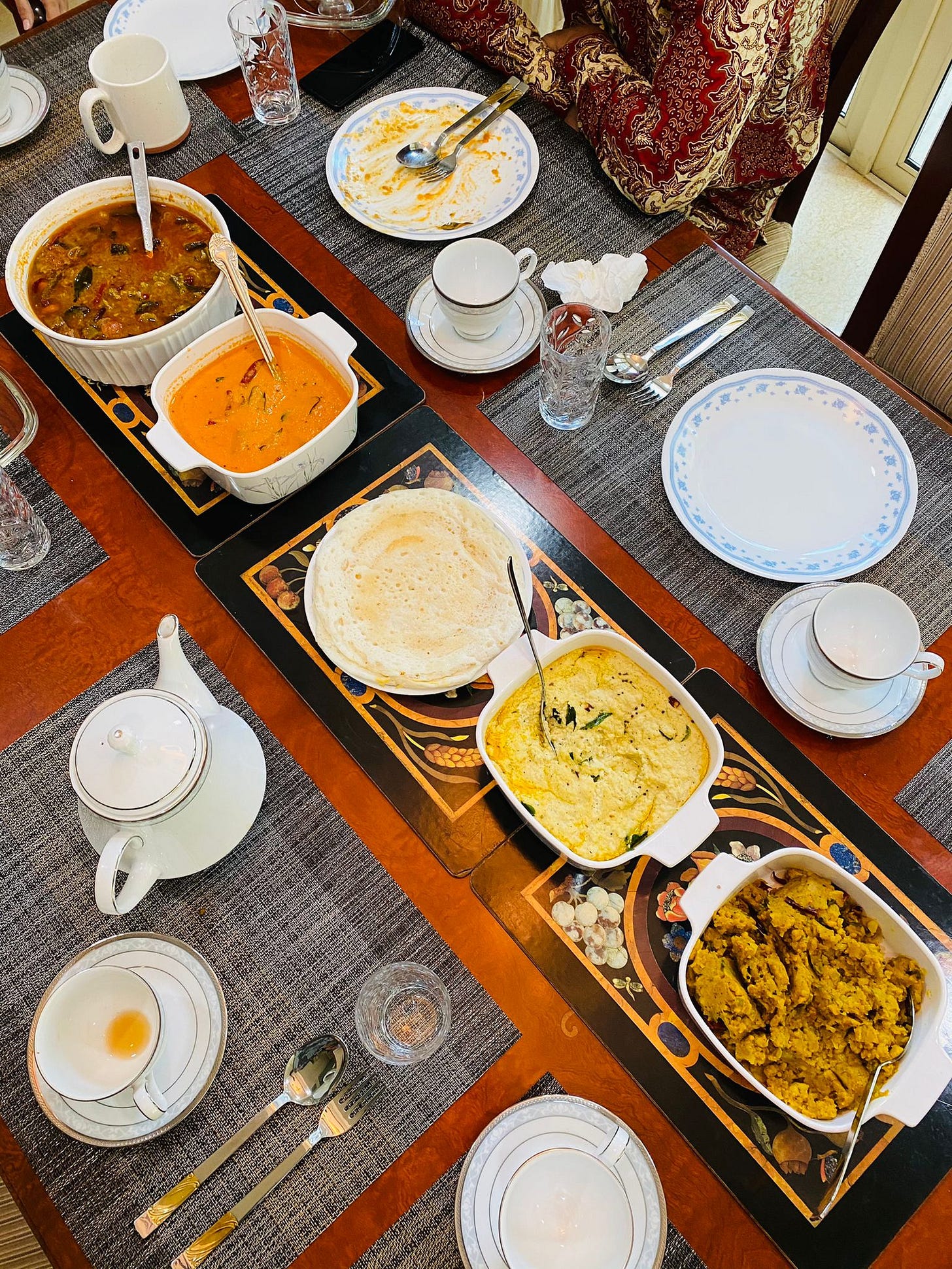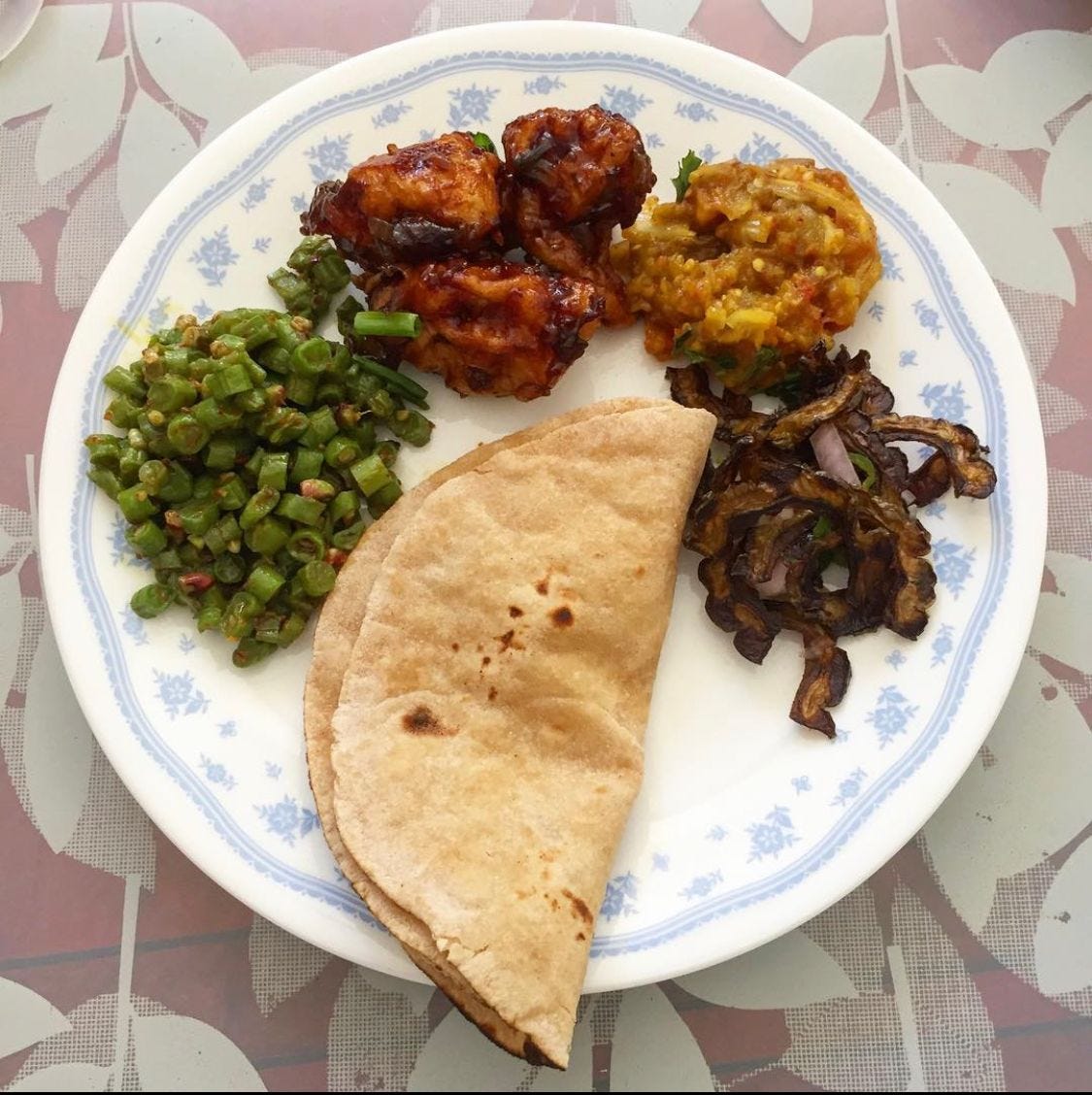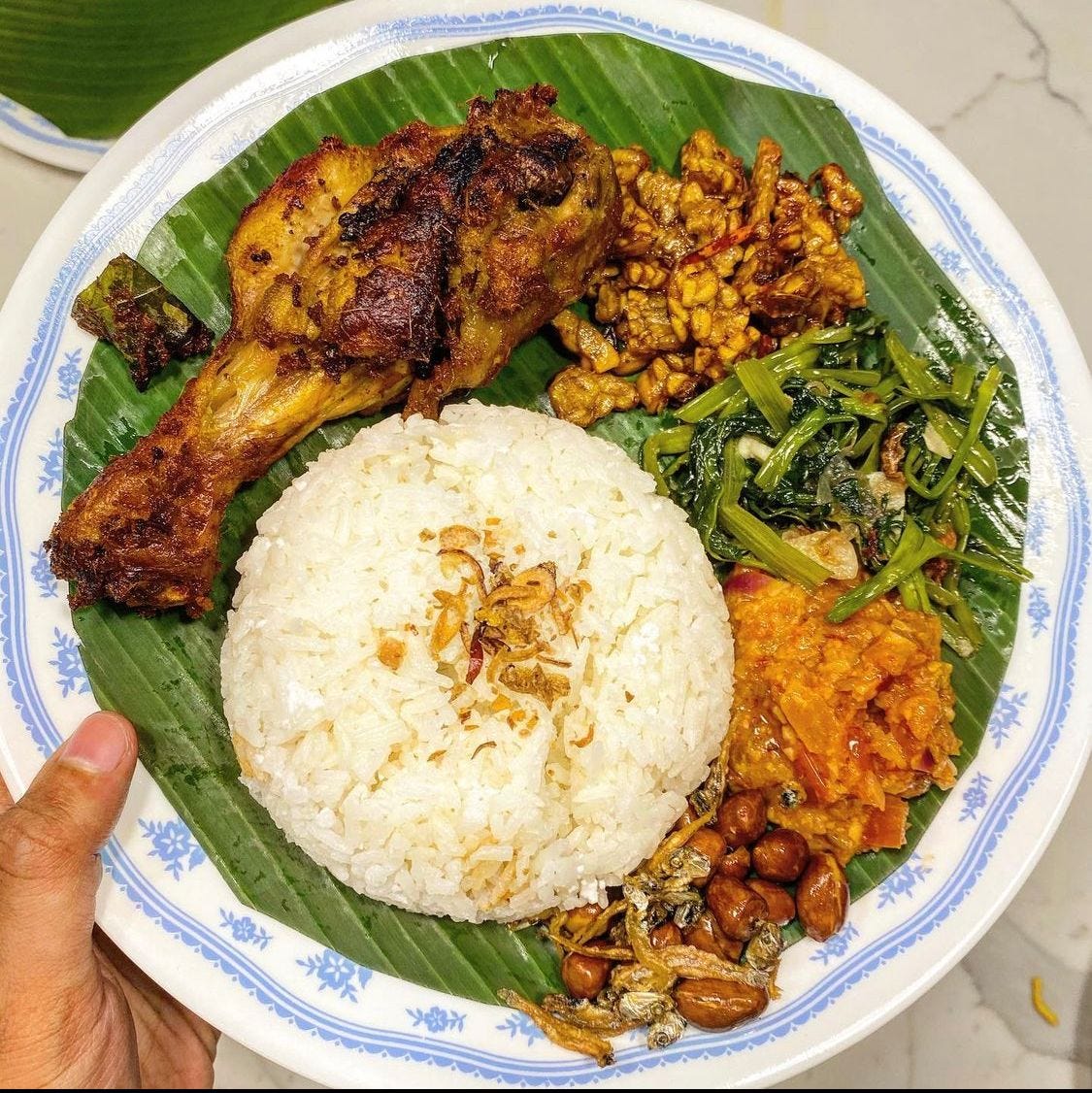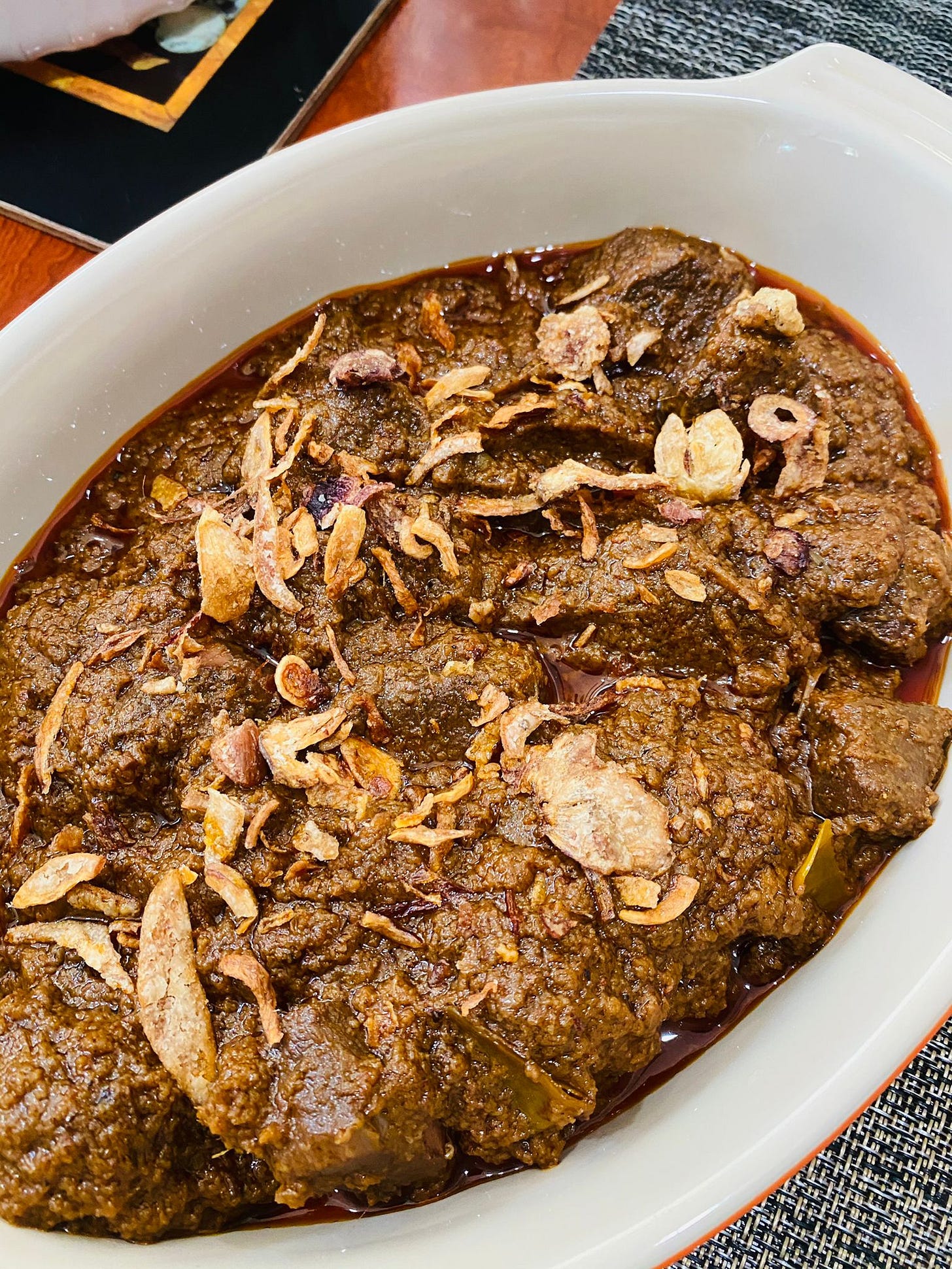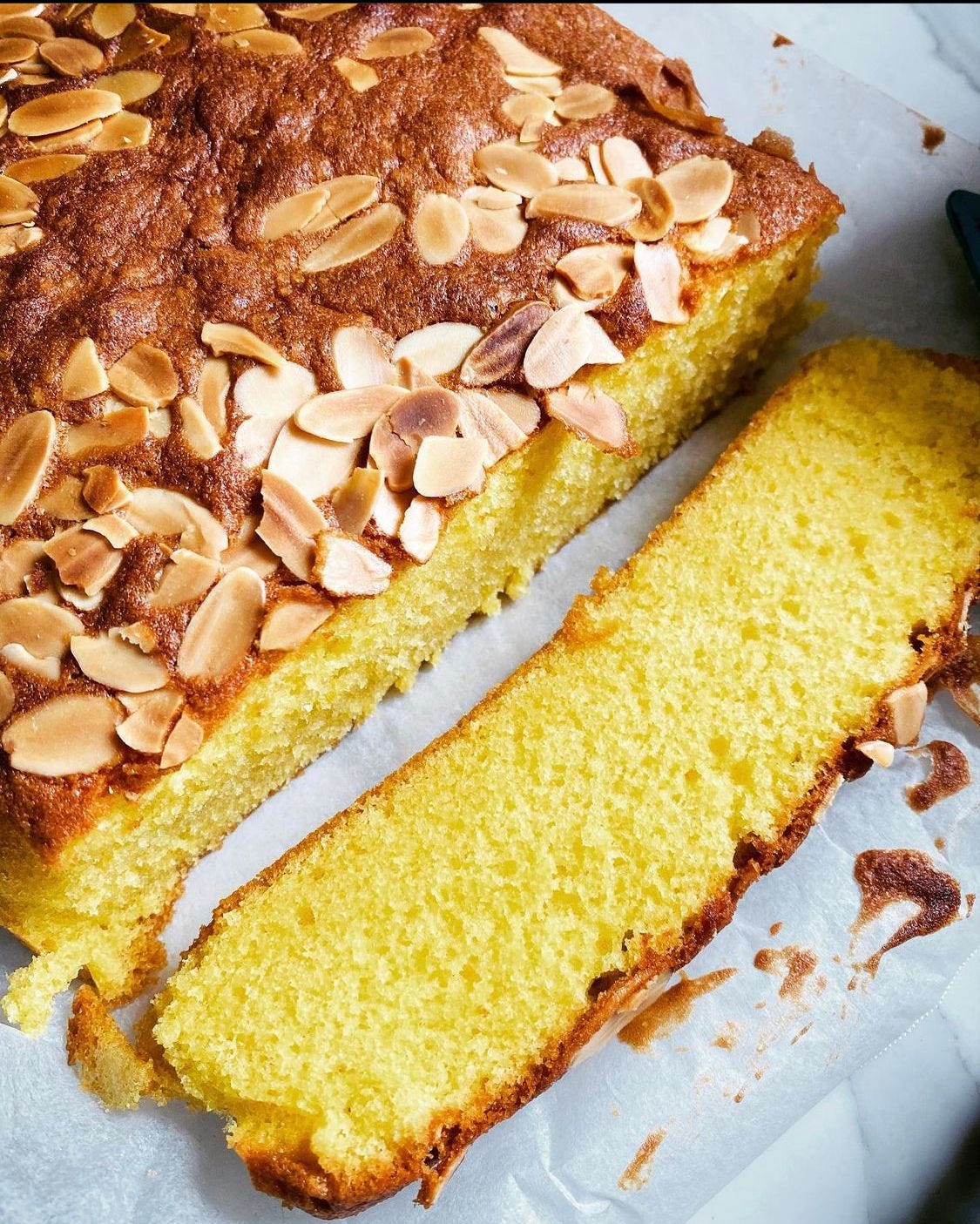As some of you may be aware, Singapore Noodles kicked off its membership late last year, and since then, I’ve been lucky to have had conversations with some of our members. They have such interesting perspectives on Singaporean food culture and personal stories that I’m going to be sharing member spotlights via this newsletter throughout 2022. I hope that you’ll enjoy reading about why they cook food from their heritage, and what it means to them. In this newsletter, I speak with Shameen Akbar (@ineedflesh) who is based in Singapore.
Shameen, could you tell me about your heritage and the role that food has played in your life?
My heritage is quite rojak - Mum’s Gujarati and converted to Islam to marry my dad, and my dad’s side is mostly South Asian (Bengali to be exact). My dad’s mum is adopted and hence, there’s a bit of Malay culture that we have infused into ours through her. I think growing up in a family with a mixed culture means that there’s a way to create your own, so what I grew up with was truly a reflection of the different cultures.
Food has always been my family’s language. When I was young, I saw food as something that brought people together, but as I grow older, food (or at least the food I grew up with and have a connection to) now has a deeper meaning. My maternal grandmother has passed, and my paternal grandmother has forgotten how to cook due to her dementia – so food is my way of connecting with them.
I do feel a slight regret for not learning to properly cook from my grandma, but she has taught a few of my family friends, and they have returned the favour and taught me some dishes, so at least I can go to them if I had any questions.
When did your interest in Singaporean food begin and how did it get started?
Growing up, I honestly didn’t want to be in the kitchen because I was trying to fight the whole ‘daughter needs to learn to cook’ mentality.
Yes, I actually think some women these days intentionally stay away from the kitchen because they don't want to fit into the stereotype of a domesticated female.
Yeah exactly. So I fought it for a long time. I really didn’t want to be in the kitchen. I was the only girl, so it felt all the more unfair. My mum will be like, “You need to learn how to make chapati”, and I’d say, “There’s Rotimatic, I don’t need to learn”.
When I was studying in Sydney for university, the longing for Singaporean food was definitely stronger and it made me feel more at home. But the interest in knowing more (& cooking) only kicked in proper during lockdown because I had a lot more time, and I really wanted to recreate some of my grandma’s dishes - especially the ones she does for Hari Raya.
At the same time, my mum was sick of cooking, so we started to take turns to prepare meals. I think I was watching a lot of Bon Appetit back then.
Good ol’ Bon Appetit!
Yeah, they made it cool. But honestly, I just had a lot of time. And also I didn’t want to spend too much money on takeaway.
How did you eventually reconcile with the ‘daughter needs to learn to cook’ mentality?
Hmm tough. I think it was a process. For me, I started to realise I enjoyed the process especially when I cooked for myself, so I make it really clear that I’m doing it for myself, and there shouldn’t be any expectation for me to do anything more just because I’m a girl. I have THREE brothers and am the only girl - so I definitely feel like I have to stand my ground. I do personally feel that cooking is a basic life skill - it shouldn’t be gender specific!
I also developed allergies which triggers my eczema, so recreating some dishes at home helps a lot. I can’t have dairy which is in a lot of Indian food, so I switch it out when I cook at home.
How did you learn how to cook traditional local dishes?
Some dishes I’ve learnt online. Some through my helper, because she’s Indonesian but has worked in Malay and Indian households. Others I’ve learnt from makciks I know.
I remember going to my friend’s house for Raya in 2019 and her mum’s rendang tasted EXACTLY like how my grandma used to make it. So, I went to her house a few months later to learn from her. She gave me a step-by-step tutorial and I took down notes and everything.
How has the actual journey been like? Did you find cooking local to be as challenging or laborious as people normally think it to be?
I think, at the end of the day, it is a skill. You will have crazy days that make you wonder why you’ve decided to make rendang at 9pm, but you just trust the process, and the end result is quite rewarding. Or at least to me.
You can decide how hard you want it to be – there are shortcuts or equipment to get you to the end result if you don’t have the time. And you can honestly take baby steps - that’s what I did. And don’t be afraid to “fail”.
Do you think social media exacerbates a fear of failure?
I think cooks don’t share enough of their feelings through the cooking process. Usually all we see is the end product. We don’t see the anxiety and worry that sometimes one goes through when you make something. So maybe people think that the ones that are posting great food pictures don’t feel how they feel when they try a new recipe or, for me, how shitty my knife skills are. So they may assume it comes naturally to people who cook?
What have been some kitchen discoveries and tips of yours? 🙂
My greatest kitchen discovery is honestly realising how mindful the process of preparing and cooking is. And it’s been a really helpful hobby especially when we’re encouraged to stay home in the last 2 years. The other discovery is that there is an art to ensuring a recipe is well written - something I’ve never really thought about. I come from a tech background so I basically draw a process map in my head as I read recipes that explain the process well.
In terms of tips - I would say investing in good equipment/tools make the process a more joyful. But I also would encourage a LOT of research before you decide to get an expensive tool - don’t be fooled by all the Instagram ads!
A few events:
1. ‘What to Eat Next’ virtual event: I will be speaking alongside Dr Kelvin Low at a virtual event organized by the National Library Board tomorrow night. My sharing will be on food (in)authenticity and what that means for the future of Singaporean food! The full session will be an hour, with 15 minutes for Q&A. You can register here.
2. May members’ cookalong: If you’ve not signed up for the members’ cookalong for sambal goreng jawa happening on 29 May (Sunday), you can do so here! 🧡

